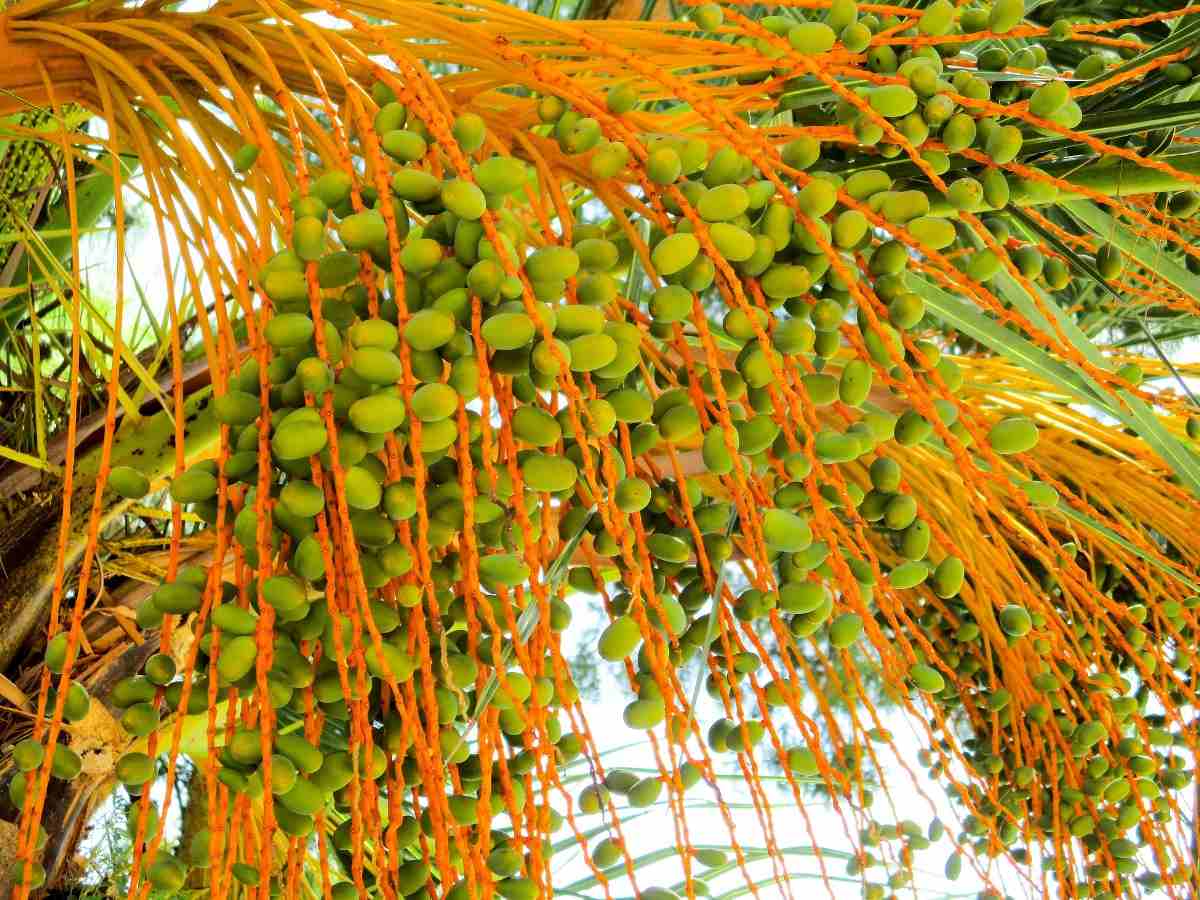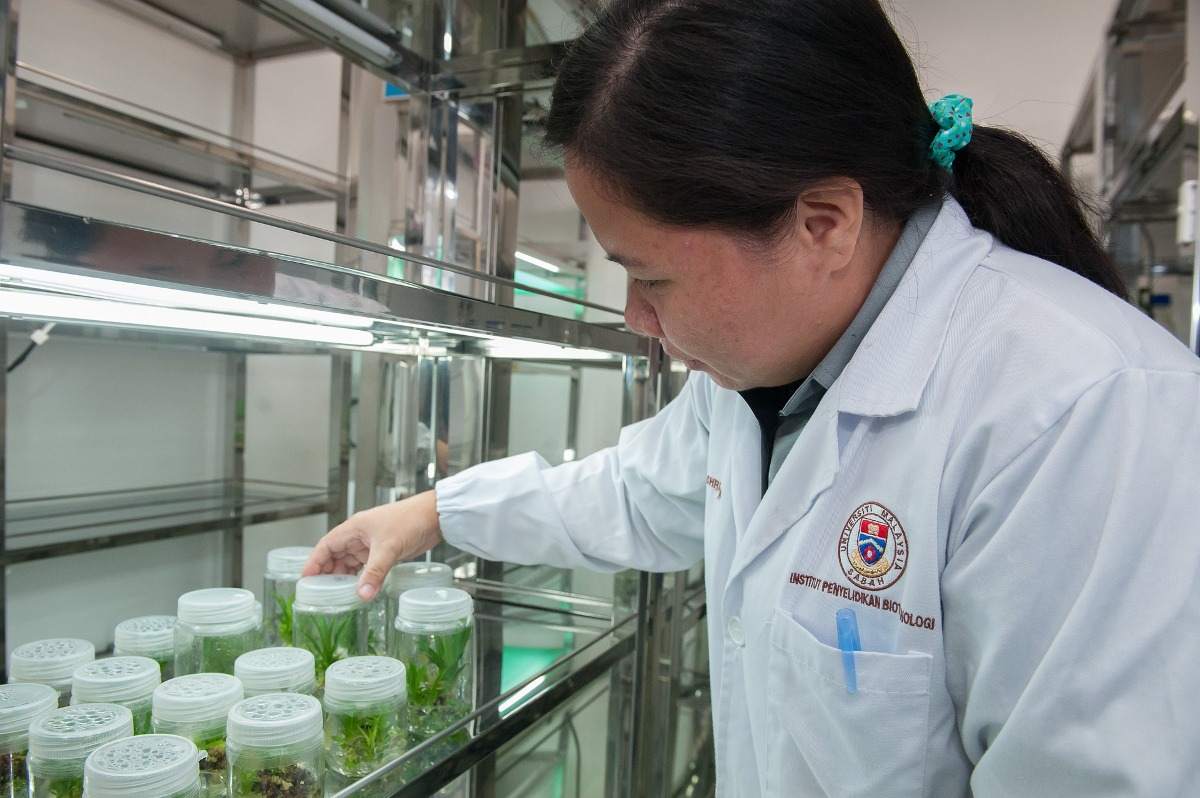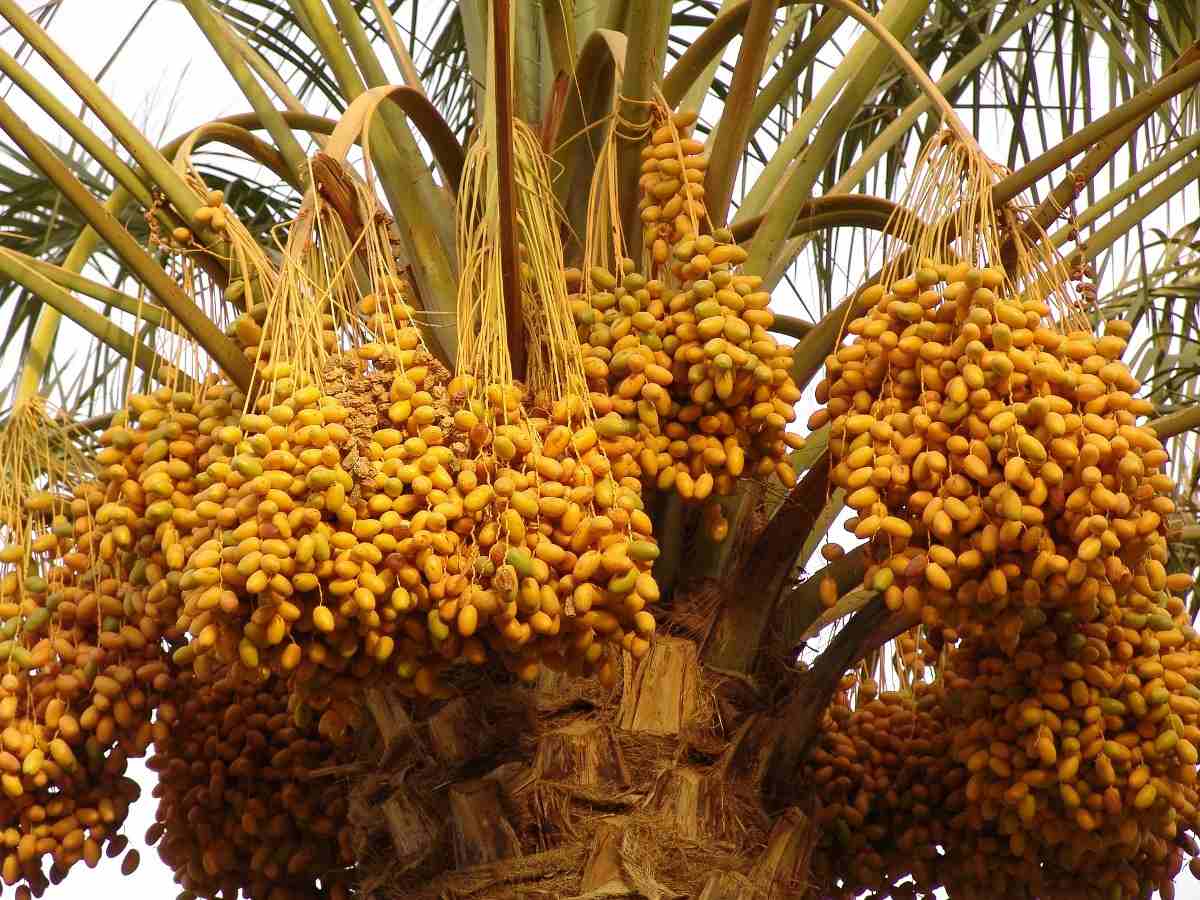Introduction: Hi we are besk with a great information of Date Palm Tissue Culture techniques, ideas and tips. Date palm is one of the oldest plantation crops, mostly cultivated for its sweet and nutritious fruits. Date palm is tolerant of high temperatures and drought. Tissue culture process involves exposing plant tissue to a specific regimen of nutrients, hormones, and lights under sterile. In vitro conditions to make many new plants, each a clone of the original mother plant, over a very short period of time. Tissue culture plants are characterized by disease-free growth, a more fibrous, healthier root process, a bushier branching habit, and a higher survival rate.
A step by step guide to date palm tissue culture
Date palm tissue culture also grows to a mature plant very quickly giving you a quick and a wholesome yield. Two major methods used for the multiplication of date palms are somatic embryogenesis and organogenesis. It is of high importance to ensure the true-to-type state of our trees by monitoring their genetic stability during the whole in vitro procedure.

The date palm grows about 23 meters tall, strongly marked with the pruned stubs of old leaf bases, pinnate leaves about 5 meters long. Floral spikes branch from the axils of plant leaves that emerged the previous year. The date is a one-seeded fruit, or drupe, generally oblong but varying much in shape, size, color, quality, and consistency of the flesh, according to the conditions of culture and the variety. More than 1,000 dates can appear on a single bunch weighing 8 kg or more. Tissue culture process provides a means for rapid mass clonal propagation of desired cultivars, and a mechanism for somatic hybridization and in vitro range of novel genotypes.
Process of tissue culture for producing new plants
The production of new plants from a small piece of plant tissue or cells removed from the growing tips of a plant in a suitable growth medium is known as tissue culture or culture solution.
The process of plant tissue culture for producing new plants is as follows;
- A small piece of plant tissue is taken from the growing point of the plant or from the tip of the plant and placed on sterile jellies that have nutrients and plant hormones.
- The hormones make the cells in the plant tissue divide rapidly producing several cells that form a shapeless lump of mass called ‘callus’.
- The callus is then transferred to another jelly containing appropriate plant hormones which stimulate the callus to develop roots.
- The callus with developed roots is then put on yet another jelly having different hormones that stimulate the development of shoots.
- The callus having roots and shoots will separate into tiny plantlets. In this way, many tiny plantlets are formed from just a few original plant cells or tissue.
- The plantlets thus formed are transplanted into pots or soil where they can grow to form mature plants.
You should not miss the Vegetable Seed Rate, Seed Treatment.

Advantages of in date palm tissue culture
- The raw material for introduction into the laboratory comes from a well-known selected origin, therefore providing true-to-type plants, uniformity and superior quality.
- Since the tissue culture process in the laboratory is sterile, and since the nursery works under very high phytosanitary standards, the plants are delivered completely free of pests and diseases.
- The tissue culture plants are uniform and give excellent uniform plantations.
- Production in the laboratory is planned according to market demand, that the growers can plan ahead their schedules and extent of planting.
- Tissue cultured trees mature rapidly and start to provide commercial yields in the 4th year after planting, thus permitting the rapid realization of the planting investment.
Development of tissue culture protocol in date palm has many benefits over other traditional approaches which include;
- These tissue culture techniques have certain advantages over traditional methods of propagation.
- They produce exact copies of plants necessary that have desirable traits and produce mature plants quickly.
- Offshoots are formed more in numbers compared to seed-grown date palm in the lifetime of a palm tree.
- Tissue culture plants bearing offshoots are true-to-type in nature and hence, in short duration, a uniform population can be developed and availability of planting material of local elite genotypes round the year.
- The selection of offshoots is carried out which are disease-free, higher in yield and having excellent fruiting characteristics, thus export of fresh dates could be carried out by the farmers.
- Large scale plantation of elite plus trees can be increased due to several numbers of suckers.
- Multiple plants are formed in the absence of seeds or necessary pollinators to produce seeds.
Steps of tissue culture
There are three major steps to the tissue culture process. Following three stages, the plants are then moved from the laboratory to the greenhouses for acclimatization and further development.
It is the initiation phase. It concerns the establishment of plant tissue in vitro by sterilizing the material and initiating it into the culture.
It is the multiplication phase. In this vitro plant material is re-divided and placed in a medium with plant growth regulators that induce the proliferation of multiple shoots. This procedure is repeated many times until the number of plants desired is reached.
The last stage is the root formation phase. It involves the introduction of hormones to induce rooting and the development of complete plantlets.
Browning of tissues and media in date tissue culture
During the course of in vitro growth and development, plant tissues do not deplete the nutrients that are furnished in the medium but release substances that can accumulate in the cultures. These substances, such as phenols, could have profound physiological effects on the cultured tissues. Date palm tissue cultures, like those of many other plants, have been normally observed to release discoloring substances into the medium which inhibit their own growth. For date, injury through the cutting of tissue culture is accompanied by secretion of the substance into the medium. The intact organ, as exemplified by embryos or whole leaves on tips do not brown and therefore grows well in culture. Browning of the tissue culture and the adjacent medium is assumed to be due to the oxidation of polyphenols and the formation of guinones which are toxic to the tissues.
You may also like the Polyhouse Garlic Farming for Profits.

To minimize browning, the pre-soaking of explants in ascorbic and citric acid solutions and adding them to the culture medium. Soaked their date palm explants in an anti-oxidant solution prior to the surface sterilization treatments. Addition of a mixture of adsorbents including citrate, adenine, and glutamine, retarded browning in date palm explants.
The addition of other adsorbents to nutrient media, for example, dihydroxy naphthalene, dimethylsulfoxide, were ineffective against browning in date palm explants. Browning could be eliminated by a nutritionally balanced medium and excision of browning explants parts during culture was advocated to prevent this problem.
The use of charcoal is preferred over cysteine and adsorbents because the latter are often toxic to the plant tissues at higher concentrations and the addition of 3 % charcoal has caused substantial root and shoot development of date embryos. The growth regulators required for callus growth and shoot development for tobacco are absorbed by charcoal addition.
Development of commercially viable protocol in date palm is one of the biggest problems as the complete protocol cycle requires at least 2.5 to 3.0 years for the development of plantlets which in some genotypes may also increase up to 4.0 to 5.0 years. The expenditure towards tissue culture activities like selection of mother plants, callus initiation, and plantlets generation requires periodical sub-culturing and hardening facilities.
Tissue culture propagation in date palm
Date palms are a much-neglected plant group in terms of understanding their development and vegetative propagation potential. However, they are economically important in tropical and subtropical regions. The rapid propagation of date palm, as well as propagation from a mature specimen, is impossible due to the limited number of offshoots formed and the fact that offshoot production is limited to a certain stage in the palm’s life span.
Application of tissue culture techniques for date palm
The application of tissue culture techniques for date palm is also called in vitro propagation, has many advantages and enables the following;
- Large scale multiplication;
- No seasonal effect on plants as they can be multiplied under controlled conditions in the laboratory throughout the year;
- Production of genetically uniform plants;
- Clones to be propagated from elite cultivars already in existence, or from the F1 hybrids of before selections, and seed-only originated palms;
- Ensure an easy exchange of plant material between different regions of a country without any risk of pests and diseases; and
- Economically reliable when large production is required.
The success of propagating monocotyledons in vitro has been limited to moderately few herbaceous species. Similarly, most dicotyledons, successfully tissue-cultured, have been the herbaceous types. It has been postulated that in woody plants, the capacity to regenerate plantlets using tissue culture techniques was lower in comparison to herbaceous plants. In palms, until twenty years ago, little success was getting in inducing and maintaining good callus. Plant tissue culture techniques have been employed to clone a wide range of plants and efficiently important palms that is date palms.
You may also consider Tilapia RAS Farming.
Functions of date palm tissue culture
Date palm tissue culture is the aseptic culture of plant cells, tissues, or organs in vitro. Plants cells have the unique property of totipotency, which is the ability of a plant cell to make all the functions of development to produce a plant, just like a zygote. Many plant species have demonstrated this ability and regenerated into a total plant. Of late, tissue culture is gaining importance because a large number of true-to-type plantlets can be formed from elite genotypes in a relatively shorter time.
The tissue culture technique can be used in multiplying virus- and disease-free plants. Even though it is a tedious process requiring technical skills, it is definitely beneficial in tree species that have a long life cycle and suffer from heterozygosity of sexual reproduction.
In date palm, clonal propagation is preferred as it is dioecious and propagation by seeds does not produce true-to-type plants. The use of offshoots is limited by their fewer numbers, takes a long time and cost-effective. So, tissue culture is the most dependable and preferred choice for the mass propagation of elite types with greater genetic uniformity.
Several attempts have been made to employ tissue culture for date palm propagation. Extensive efforts have been made for the large-scale micropropagation of date palm plants using techniques of somatic embryogenesis and organogenesis. Somatic embryogenesis is known to be a quick and efficient process for large-scale propagation of date palm and is highly useful for breeding programs. The use of cell suspension cultures coupled with somatic embryogenesis could be used for genetic transformation and biolistic gene transfer.
Somatic embryogenesis has been successfully obtained and appears to be a promising approach for the large-scale propagation of date palm. The application of somatic embryos in the production of synthetic seeds. The origin and nature of embryogenic cultures are of critical value for the in vitro production of somatic embryos and the nodular callus originating from leaf primordia bases could create viable somatic embryos. Though, abnormal development, low maturation, and germination frequencies of somatic embryos are serious limitations. Maintaining synchrony during the induction of embryo-genesis is difficult in date palm.
The Government of India as a minimum of Rs. 500 per plant is saved towards subsidy for purchasing of tissue culture date palm plantlets by the farmers and growers.
You may be interested in the role of Modern Farm Equipment in Agriculture.
Thanks for providing such good knowledge. I was gone in the exhibition in dec-2019 in Pune.
There were many stalls of horticulture and tissue culture, I asked one promoter, which was came from Gujarat , he was along with 6 inch tissue culture date palm ” how many years this tissue culture plant is?” he answered me- three years. I was l shocked. I think he was lying. but after reading your this blog, I thnk he was right. Thats why the date palm tissue culture plant is so expensive.
How many plants require per one acer what is the cost one plant . how many days require for delivery after order.
Unless one has deeper pockets, it would be difficult to see date palm as a product for most of the tissue culture laboratories; farmers buying the plants would ask for the performance of the product which will take additional five years!.
We are planning to set up a plant tissue culture laboratory to propagate date palm plants. The estimated production is 50,000 plantlets per month. Need help to do a business plan.
I need a date tissue culturing expert